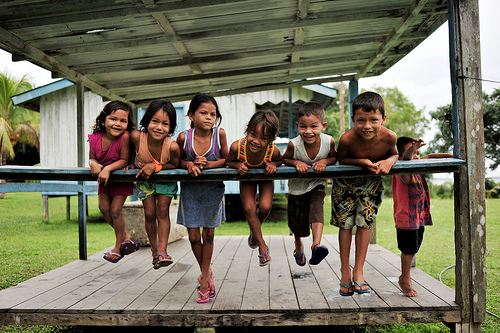 A recent study conducted by Food and Agriculture Organization of the United Nations (FAO) presents the benefits of school feeding programs in Latin America.
A recent study conducted by Food and Agriculture Organization of the United Nations (FAO) presents the benefits of school feeding programs in Latin America.
Entitled A Panorama of School Feeding and the Possibilities for Direct Purchases from Family Farming—Case Studies in Eight Countries (Spanish only), the study reports on the effects on children’s well-being, social protection, food security, and local development as the result of school feeding programs. Additionally, such programs were proven to have increased school attendance and improved the academic performance of students. Moreover, the eight countries—Bolivia, Colombia, El Salvador, Guatemala, Honduras, Nicaragua, Paraguay, and Peru— in which the study was undertaken expressed interest in having local family farmers as food suppliers to encourage the local economy.
“This is a triple-win approach: it secures quality food for students of public schools, promotes consumption of fresh and healthy food, and opens new markets and the possibility of higher incomes for family farmers while boosting local development,” said the Director-General of FAO, José Graziano da Silva.
Various programs examined by the study include about 18 million students of different ages and educational levels. The combined budget comprises approximately US$940 million which equates to an investment of US$25 per student annually.
According to the study, the regional governments’ commitment to school feeding programs has grown, but an adequate legal and regulatory framework to smoothly regulate local food supply to government networks are still needed.
“The study shows that tackling the challenges of school feeding programs requires the involvement of various actors, including governments, parliamentarians, international organizations, private sector, the educational community, and civil society,” noted Najla Veloso, coordinator of FAO’s regional work in Latin America.
This study was supported by the Brazil-FAO International Cooperation Program, which aims to help countries achieve Millennium Development Goals (MDGs).
Creative Commons Love: CIFOR on Flickr.com
Written by Carolina Shin
